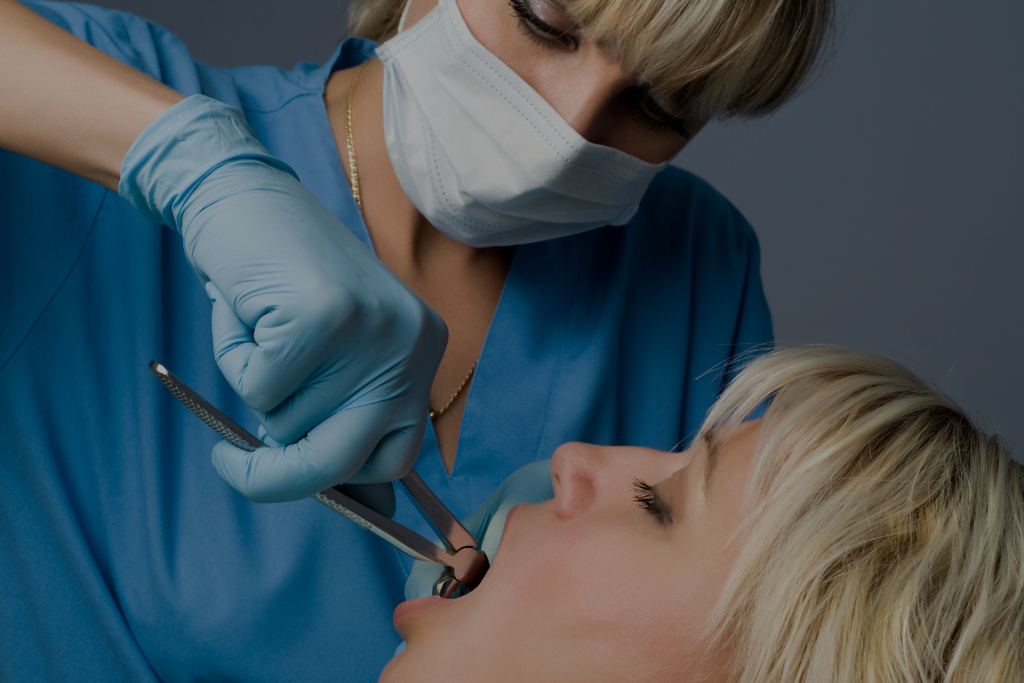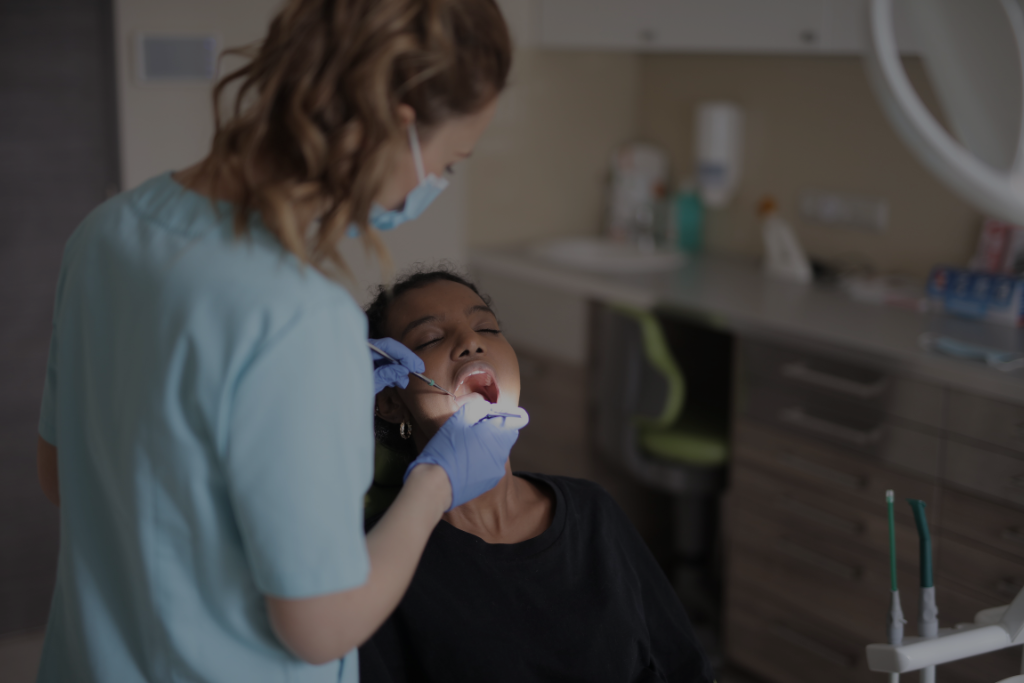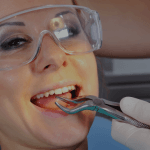Wisdom teeth, those mysterious third molars that emerge in our late teens or early twenties, have become something of a rite of passage in modern dentistry. Nearly everyone has a story about their wisdom tooth extraction, complete with ice packs and soft food diets. But why do these teeth exist if they so often need to be removed? For many patients, the emergence of wisdom teeth can lead to pain, infection, and other oral health issues if left untreated. Understanding when and why these teeth require removal can help alleviate anxiety about this common surgical procedure. At Delta Park Dental, we believe that patient education is an essential component of comprehensive oral health care, and we’re committed to providing clear information about wisdom teeth removal to ensure the best possible outcomes for our patients.
What Are Wisdom Teeth?
The Third Set of Molars
Wisdom teeth, or third molars, are the final set of teeth to develop in the human mouth. Most people have four wisdom teeth, positioned at the back of the mouth – one in each of the four corners. They typically begin to form around age 7 but remain hidden beneath the gums until much later.
These teeth usually emerge (erupt) between the ages of 17 and 25 – hence the name “wisdom teeth,” as they appear during the “Age of Wisdom.” However, some people’s wisdom teeth never erupt, while others might have fewer than four or, rarely, more than four.
Why Do Wisdom Teeth Often Need to Be Removed?
Limited Space and Impaction
The most common reason for wisdom teeth removal is simply lack of space. Modern human jaws frequently don’t have enough room to accommodate these additional teeth, leading to what dentists call “impacted wisdom teeth.”
The American Association of Oral and Maxillofacial Surgeons reports that about 90% of people have at least one impacted wisdom tooth. Impaction occurs when a wisdom tooth is prevented from emerging normally, often because it’s growing at an odd angle or there’s inadequate space.
Types of impaction include:
- Mesial impaction: The tooth is angled toward the front of the mouth
- Distal impaction: The tooth is angled toward the back of the mouth
- Vertical impaction: The tooth is positioned correctly but doesn’t have room to erupt
- Horizontal impaction: The tooth is angled sideways, often growing directly into the roots of the adjacent teeth
Potential Complications of Untreated Wisdom Teeth
Damage to Neighboring Teeth
When wisdom teeth come in at an awkward angle, they can push against the second molars, causing damage, misalignment, and increased risk of decay where the teeth meet. According to expert opinion from the American Dental Association, this crowding effect can even compromise previous orthodontic treatment, potentially undoing years of dental work.
Cysts and Fluid-Filled Sacs
The National Library of Medicine notes that wisdom teeth, especially impacted ones, can develop cysts or benign tumors in the jaw bone. If left untreated, these growths can hollow out the jaw and damage nerves and nearby teeth. In rare cases, this can lead to bone loss and require extensive surgical correction.

Gum Disease and Infection
Partially erupted wisdom teeth create an opening where bacteria can enter around the tooth, causing a painful condition called pericoronitis – painful inflammation of the gum tissue surrounding the wisdom tooth. The awkward positioning makes proper cleaning difficult, increasing the risk of infection, gum infections, and periodontal disease.
A study by Ghaeminia H found that asymptomatic disease-free impacted wisdom teeth still carry a significant risk of developing pathology over time, with up to 12% developing issues within four years.
Tooth Decay
Even wisdom teeth that come in normally are difficult to clean because of their location far back in the mouth. Food particles and bacteria easily accumulate around these teeth, leading to decay. According to the Cleveland Clinic, decayed wisdom teeth can spread infection to adjacent teeth and contribute to overall poor oral health.
Overcrowding
As wisdom teeth attempt to emerge in a mouth without adequate space, they can exert pressure on other teeth, potentially causing alignment issues throughout the mouth. While not all dental professionals agree that wisdom teeth directly cause crowding, many consider removal a preventative measure, especially for patients who have undergone orthodontic treatment.
When Should Wisdom Teeth Be Removed?
The timing of wisdom teeth removal typically depends on several factors:
Age Considerations
Most dental and oral health professionals recommend extraction during the mid-teenage years to early twenties (usually between ages 17-25). During this period, the roots of the wisdom teeth aren’t fully developed, and the bone is less dense, which generally makes extraction easier with fewer complications.
The American Dental Association notes that healing is typically faster for younger patients, with reduced risk of long-term complications or nerve damage.
Symptoms Indicating Removal is Needed
Signs that might indicate wisdom teeth need to be removed include:
- Pain or jaw pain at the back of the mouth
- Repeated infections in the area (pericoronitis)
- Gum disease in the molars
- Damage to nearby teeth
- Tooth decay in partially erupted wisdom teeth
- Cysts or tumors developing around the wisdom tooth
- Bad breath or bad taste that persists despite good oral hygiene
Preventative Removal
Many dental professionals recommend preventative removal of wisdom teeth, even if they aren’t currently causing problems. The reasoning behind this approach includes:
- Avoiding future complications when removal might be more difficult
- Preventing damage to adjacent teeth and bone tissue
- Reducing the risk of infection and disease
- Avoiding more complicated surgery at an older age when healing may be slower
However, this approach is not without controversy. Some recent studies question the necessity of removing asymptomatic disease-free impacted wisdom teeth. A consultation appointment with an oral health professional can help determine the best approach for your specific situation.
The Wisdom Tooth Removal Procedure
Before Surgery: The Consultation
Before any extraction procedure, you’ll have a consultation appointment with your dentist or oral surgeon. This typically includes:
- A thorough examination of your mouth
- X-rays or 3D imaging to determine the position of your wisdom teeth and their relationship to other structures like nerves and sinuses
- Review of your current health, medications, and health condition
- Discussion about the type of anesthesia that will be used
- Providing pre-operative instructions
- Answering questions about the procedure and recovery
It’s important to provide a valid email address for communications regarding your appointment and to receive post-operative instructions.

Types of Anesthesia
The type of anesthesia used depends on the complexity of the extraction and your comfort level. Options include:
- Local anesthesia: Numbing injections similar to those used for cavities
- Sedation anesthesia: Administered through an IV, this suppresses consciousness but you remain awake. You’ll have limited memory of the procedure.
- Nitrous oxide: Also known as “laughing gas,” provides mild sedation while remaining conscious
- General anesthesia: Renders you completely unconscious. Used for more complex cases or very anxious patients.
Modern monitoring equipment tracks your blood pressure, heart rate, and oxygen levels throughout the procedure to ensure patient comfort and safety.
The Extraction Procedure
Wisdom tooth removal is typically performed as an outpatient surgery, meaning you go home the same day. The procedure varies depending on whether the tooth is erupted or impacted:
For visible teeth, the extraction is similar to a standard tooth removal. For impacted teeth, the oral surgeon or maxillofacial surgeon will:
- Make an incision in the gum to expose the tooth and bone
- Remove any bone blocking access to the tooth root
- Divide the tooth into sections if it’s easier to remove in pieces
- Extract the tooth
- Clean the site of any debris
- Stitch the wound closed (sometimes)
- Place gauze over the extraction site to control bleeding and help a blood clot form
The entire surgical procedure typically takes 45 minutes to an hour for all four wisdom teeth.
Why Choose Delta Park Dental for Your Wisdom Teeth Removal
At Delta Park Dental, we combine clinical excellence with compassionate care to ensure the best possible experience for wisdom teeth removal. Our approach to this common but significant procedure sets us apart in several key ways:
Comprehensive Evaluation and Personalized Care
Our team conducts thorough assessments before recommending wisdom teeth removal. Unlike some practices that take a one-size-fits-all approach to extraction, we evaluate each case individually, considering factors like the degree of impaction, the angle of the teeth, your age, and overall oral health. This personalized approach ensures that we recommend removal only when truly beneficial.
Advanced Surgical Techniques
Our oral surgeons employ the latest surgical techniques to minimize trauma and promote quick recovery. We utilize precise imaging technology to visualize the exact position of your wisdom teeth in relation to critical structures like nerves and sinuses, allowing for superior outcome with minimal risk factors.
Multiple Anesthesia Options for Maximum Comfort
We understand that dental anxiety is real, especially concerning surgical procedures. That’s why we offer various types of anesthesia to ensure your comfort, from local anesthesia for simple extractions to conscious sedation and general anesthesia for more complex cases or anxious patients. Our modern monitoring equipment ensures your safety throughout the procedure.
Comprehensive Post-Operative Support
Our care doesn’t end when the procedure is complete. We provide detailed postoperative instructions both verbally and in writing (including via email if you provide a valid email address). Our team is readily available to address any concerns during your recovery, and we schedule appropriate follow-up appointments to monitor your healing process.
Integration with Overall Oral Health Care
Unlike specialty practices that focus solely on extractions, we consider your wisdom teeth removal in the context of your overall dental treatment plan. This integrated approach ensures that your extraction complements any orthodontic treatment or other dental work you’ve had or plan to have.

Transparency in Costs and Insurance
We understand that the cost of wisdom teeth removal is a significant consideration for many patients. Our administrative team works with you to understand your insurance coverage and provides clear information about any out-of-pocket expenses before proceeding with treatment.
Commitment to Education
We believe informed patients make better decisions. That’s why we take the time to explain the procedure, discuss the risks and benefits, and answer all your questions. We’ll never pressure you into unnecessary treatment but will provide honest recommendations based on current health topics and evidence-based dentistry.
Coordination with Alberta Health Services
For patients eligible for coverage through Alberta Health Services, our team can help navigate the system to maximize your benefits and ensure you receive the care you need with minimal financial burden.
Conclusion
Wisdom teeth removal is one of the most common dental surgeries performed today, with millions of extractions conducted annually. While not everyone needs their wisdom teeth removed, these third molars frequently cause problems due to limited space in the modern human jaw. From impaction and damage to neighboring teeth to increased risk of infection and decay, the complications associated with problematic wisdom teeth can significantly impact your oral health. By understanding the purpose of these teeth, recognizing warning signs of trouble, and knowing what to expect from the extraction procedure, you can approach this common dental milestone with confidence. At Delta Park Dental, we’re committed to providing exceptional care throughout the entire process, from initial consultation through recovery, ensuring the best possible outcome for your dental health and overall well-being.
Tags
- Dental Bridges
- Veeners Dental
- Veeners Dental Near Me
- Root Canal Treatment near me
- Dental Bonding In Brampton
- Bridge Dental Brampton
- Dental Bridge Brampton
- Emergency Dental Brampton
- Dental Bridges Near Me
- Dental Veneers Near Me
- Veneers Dental
- Root Canal Therapy
- Dental Emergency Near Me
- Emergency Dentistry
- Brampton Dental Implant
- Dental Implant Brampton
- Dental Implant
- Dental Implant in Brampton
- Dental Veneers
- Dental Veneer
- Dental Filling Before and After
- Whiten Teeth
- crown dental implant
- Dental Crown in Brampton
- Whitening Teeth
- Wisdom Teeth Removal
- Dental Bonding
- Dental Bonding Near me
- Dental Crown Near Me
- Dental Crown Brampton
- Wisdom Teeth Extraction
- Wisdom Tooth Removal
- Dental Crown
- Dental Teeth Whitening
- Wisdom Tooth Extraction
- Dental Filling Brampton
- Dental Filling
- Teeth Whitening Dentist
- Dental Fillings
- Teeth Extraction
- Dental Filling Near me
- Teeth Whitening Near Me
- Dental Emergency Brampton
- Tooth Extraction
- Emergency Dentistry Services



